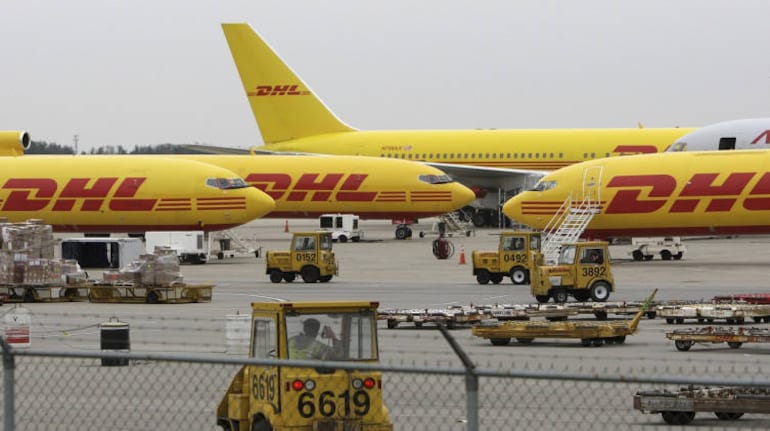
Forecasts for the Indian economy may be mostly gloomy. Some economists predict a recession for a year, others are even more pessimistic. But RS Subramanian, Senior Vice President and Managing Director, DHL Express India, says he has a 'far more positive view'.
"I'm not an economist. But despite the COVID-19 disruption, globalisation won't go. And India as a country, where there is not much surplus consumption, the scope to cut down is very very low. The demand cycles are not far away in India," says the senior executive.
Subramanian's opinion may sound overtly optimistic, but he is on a vantage point that offers him a view of the economy that few others can have. DHL Express, India's largest courier service provider, has over 60,000 customers cutting across all major sectors, including large, medium and small enterprises.
"I was pessimistic in early May," accepts Subramanian in an interview with Moneycontrol. But his view become more sanguine over the next few weeks.
If DHL Express had budgeted for 40 percent of the 'normal' business from its customers, it actually was up to 10 percent more. The trend continued in June, where again the demand from customers was higher than what the company had hoped for.
Right now, says Subramanian, "Over 70 percent of DHL Express customers are operational and all are operating at an average of 50 percent or more." The company, which before COVID-19 hit, used to handle a million shipments a month, is slowly, but steadily approaching the mark, and is presently doing about 70 percent of the volume.
COVID-19 challenges
Much of the DHL Express network depends on the availability of air cargo. Unfortunately, immediately after the lockdown was announced in March, much of this capacity went off the air.
"Up to 40 percent of the international freight capacity comes from commercial airlines who carry cargo in the belly of their aircraft. But nearly the whole fleet is grounded," points out Subramanian.
India is yet to resume international flights, even though domestic service was reopened on May 25.
This meant that there was a run for the capacity that was available, and much of it went for COVID-19 related cargo. "This was everything, from PPE to testing kits and chemicals," said the DHL Express senior executive.
On the ground too, the challenges were many, including setting up infrastructure at home of more than 1400 employees who started working from home. On top of that, any given day there are over 1,000 DHL Express employees on the road, and an equal number at its facilities.
"We have always been paranoid about hygiene in our facilities. Even more now," says Subramanian. While the company's spend on sanitation has gone up by up to 15 percent, Subramanian says it's "essential for business continuity".
Additional challenge for a courier service provider is that its delivery man has to go to 30 to 40 different locations in a day, and the critical thing is to minimise interaction with a customer.
The challenges though, have had a silver lining.
Digital breakthrough
DHL Express had been working with its customers to drive digitalisation across its transactions, ranging from custom duties to final payment.
"But there was certain level of resistance. It was not a resistance to change, but there were complexities to cross as most companies had legacy systems. The COVID-19 situation has broken some of that resistance, and given us a breakthrough," says Subramanian.
For instance, air waybill - a document on each air consignment that is couriered - was always manually done, leading to mistakes that resulted in protracted negotiations with customers.
Till three years ago, 55 percent of the bill was digitised. In 2020, it improved to 85 percent because of the digitisation drive and is now just a shade less than 100 percent.
Similarly, in January, 70 percent of the payment was being done online and the rest still came in cheques. Now over 97 percent is done online.
DHL Express is now working with other partners, including the Customs department, to develop apps that will going forward completely digitise the company's engagements. This includes the engagement at the delivery point. "Instead of a signature - even a digital one - can we instead send a code to the customer's mobile phone and complete the delivery? That is being done to ensure zero physical contact," says Subramanian.
Quicker digitisation, working from home (DHL Express is working on a long term policy towards this) and a heightened sense of hygiene are the three positive outcomes of an otherwise destructive COVID-19, says Subramanian.
Discover the latest business news, Sensex, and Nifty updates. Obtain Personal Finance insights, tax queries, and expert opinions on Moneycontrol or download the Moneycontrol App to stay updated!